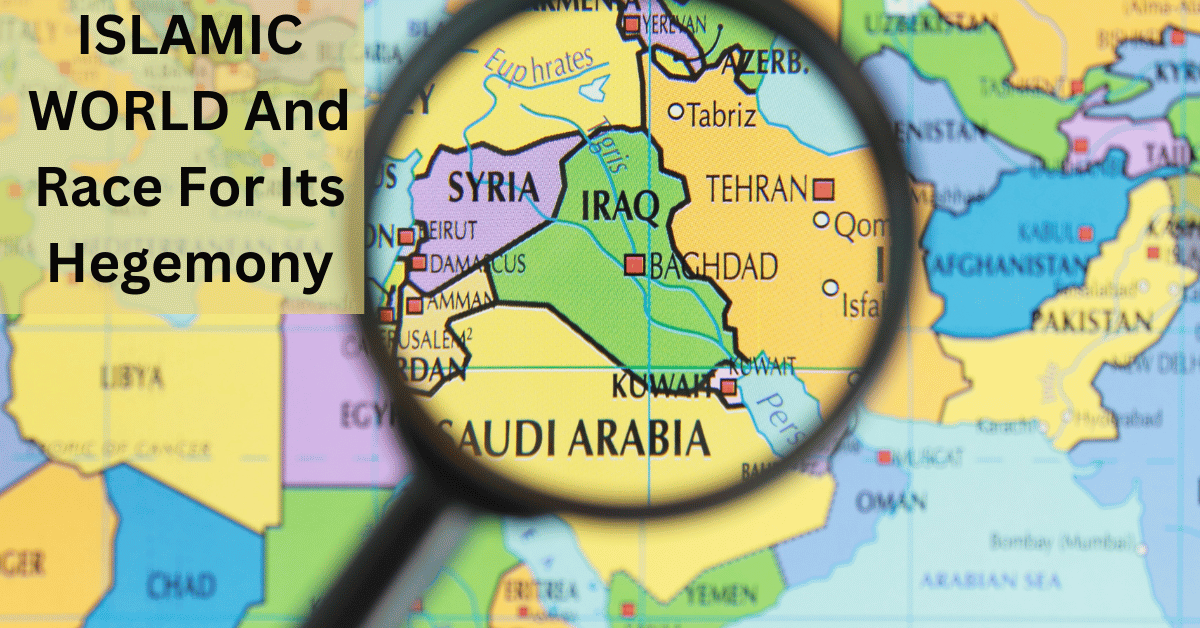Having immense oil reserves and Islamic sacred places, Saudi Arabia acts as the leader of the Muslim world. Oil reserves have transfigured its ruling dynasty, Al Saud, from the achromic and lifeless desert to the richest and most influential family in the world. Holding 16.2 percent of the world’s oil reserves, Saudi Arabia is the second largest oil producer in the world. The presence of Islam’s holiest cities, Mecca and Medina, naturally makes them the guardians of the Islamic World. However, this leadership has been challenged by other candidates for a long time.
Race For The Leadership Of The Islamic World
In 1923, the Republic of Turkey replaced the Ottoman Empire. The former commander of the Turkish army, Mustafa Kemal Pasha, became the first president of Turkey. He abolished the caliphate and exiled the last caliph of the Ottoman Empire. He adopted radical reforms to transform Turkey into a secular country. Elie Kedourie said that Mustafa Kemal knew that the caliphate’s image had profoundly impacted the minds of the Muslim World. That’s why he wanted to nominate himself as caliph, but the secularization of Turkey was making it more complex. So, it was a challenge in a way to be caliph for Mustafa Kemal.
THE OTHER COMPETITORS FOR ISLAMIC WORLD HEGEMONY
There were two other competitors too: Ibn Saud of Saudi Arabia and King Fuad of Egypt. In 1926, Fuad arranged an International Muslim Conference in Cairo, but it was not attended by many. After that, Saudi Arabia organized a conference that was not attended by Turkey and Iran. In 1947, Pakistan also entered the race. It arranged a World Muslim Conference and emphasized pan-Islamic ideas, but Saudi Arabia already considered itself a post-colonial Muslim World leader.
Gamal Abdel: Muslim leader
And then Egypt witnessed a coup, and Gamal Abdel became president. He had a powerful, charismatic, and influential personality that inspired the Muslim World. After defeating the British, French, and Israelis during the Suez Canal crisis, Abdel emerged as a hero in the Islamic World and remained the Muslim World’s leader for a decade. Having been defeated by Israel in 1967, Abdel lost his influence, and Saudi Arabia re-entered the race. The 1973 oil crisis exponentially increased its importance in the world, and it started enhancing its influence over the Islamic World. As far as Pakistan is concerned, the 1971 war weakened it drastically. Saudi Arabia took advantage of the situation and dragged Pakistan into its ever-expanding orbit. In 1980, the world saw a massive rise in Saudi political and religious influence because of petrodollars and the popularity of Islam in Muslim countries. Breaking out of the Arab Spring, the Withdrawal of the USA from the Middle East, and the rise of China could not challenge Saudi supremacy.
Development Challenges Saudi Hegemony
Recently, a race has been seen again regarding this title. In 2019, Malaysia arranged the Kuala Lumpur Summit, which was attended by Qatar, Indonesia, Turkey, and Malaysia. All these powers were challenging the Saudi positions by presenting themselves as the new leaders of the Muslim World. Another grouping of three non-Arab countries, Turkey, Malaysia, and Pakistan, was created to challenge Saudi domination over the Muslim world. This grouping aims at ending Islamophobia and improving the lives of Muslims across the world. All three countries announced plans to launch a new channel on Islamophobia; however, it has not happened so far. Pakistan is not happy with Saudi Arabia due to its close relations with India, and Erdogan, the Turkish president, is pressuring non-Arab countries to get out of Saudi Arabia’s orbit in order to glorify the Ottoman Empire again.
A BIG CHALLENGE TO SAUDI HEGEMONY
The murder of Saudi journalist Jamal Khashqujii in Istanbul further damaged relations. Turkey and the whole West demanded a serious investigation against Muhammad bin Salman, the Saudi crown prince. It affected Saudi Arabia’s hegemony to a great extent. Moreover, Iran is supporting anti-Arab forces like the Houthis in Yemen and Bashar al-Assad in Syria. All these developments predicted Saudi Arabia’s downfall in the Muslim world.
Reversing Fortune Trends
Owing to poor economic conditions, Turkey and Pakistan are forced to turn to Saudi Arabia. They are demanding fresh capital inclusion from Muhammad bin Selman. The countries that were making blocs against Saudi Arabia are now seeking help from it. The main reason for this shift is considered a pandemic, which affected these economies so harshly. All the Muslim economies are facing a terrible phase except Saudi Arabia. It is because of the Ukraine-Russia war following high oil prices. It increases Saudi revenue twofold. Now, Saudi Arabia is taking steps to normalize its relationship with Iran and Qatar by announcing a ceasefire in Yemen and removing the blockade from Qatar in order to affirm and preserve its leadership. Indonesia’s PM has invited Saudi Arabia to invest in their new capital on Borneo Island after the original investor, Softbank Group, pulled back. Saudi criticism in Malaysia is also fading out after the end of anti-Arab President Mahathir Muhammad’s tenure.
Keeping all these developments in mind, many experts are of the view that Saudi Arabia still has hegemony over the Muslim World and that there will be no competitor in the near future.




